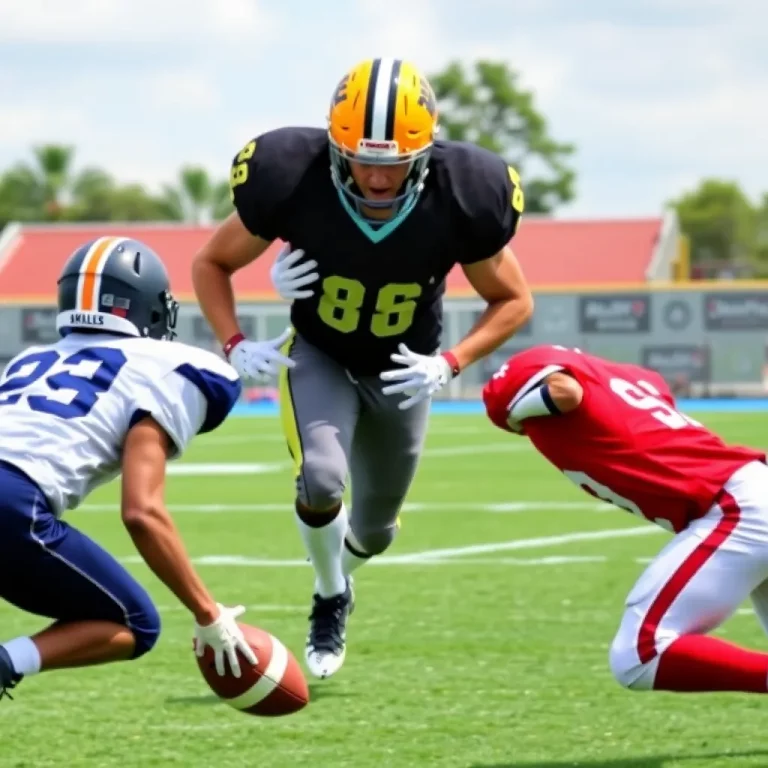INDIANAPOLIS — The National High School Football Rules Committee has made some notable changes to game rules after a three-day conference in the city. A significant focus of the new regulations revolves around equipment used in the game.
One key update addresses the design of tooth and mouth protectors. The new rule states that these protectors must not include any non-functional attachments that do not serve a protective purpose. Additionally, any elements that could pose health risks to players are strictly prohibited.
Another major change involves arm sleeves. These must meet the standards set by the Sports & Fitness Industry Association (SFIA) at the time of manufacture. Coaches are reminded that these arm sleeves need to have a visible SFIA seal on the outside so their compliance can be easily confirmed.
In a bid to keep the game fair, players are now banned from recording video or audio on the field. Committee chairman Steve Roberts explained the new rule was implemented to prevent players from using hidden devices for recording plays, which had become an issue during games.
Perhaps the most impactful rule change concerns forward fumbles. The previous rule stated that if a fumble went out of bounds, the ball was placed at the yard line where it crossed the sideline. Now, if a forward fumble occurs, the ball will be returned to the spot of the fumble itself, meaning a team can no longer benefit from a forward fumble that goes out of bounds.
Bentonville’s head coach, Jody Grant, expressed support for this new regulation, which he believes levels the playing field. “If an offensive team fumbles the ball forward, they could gain an unfair advantage. Now, we’ll see the fumble marked correctly where it took place,” he stated.
However, there was significant discussion regarding the potential implementation of in-helmet communication between coaches and quarterbacks. Despite many coaches advocating for it, Roberts maintained that such a measure is not necessary yet and doesn’t see a significant problem with sign-stealing at the high school level.
Coach Chris Young of Greenwood disagreed, suggesting that as more games are live-streamed, teams are increasingly finding ways to predict plays using signals. Both Grant and Young believe that improved communication could reduce mental errors during games.
In conclusion, Roberts emphasized that the key focus of these rules is to protect the game and its participants, providing a positive experience for everyone involved in high school football.


